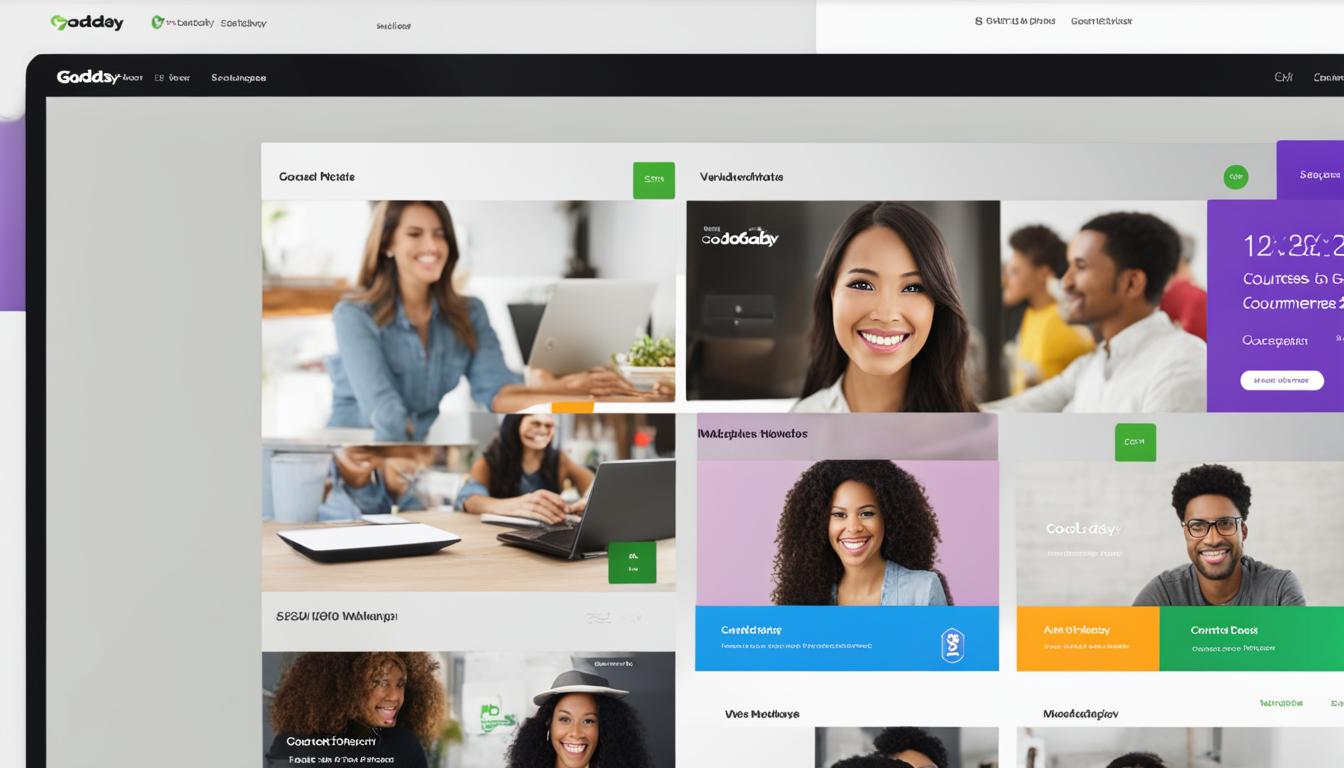What Is a Dedicated IP & Does Your Website Need One?
Did you know that having a dedicated IP address can have a significant impact on your website’s performance and security?
A dedicated IP address is a unique numeric identifier assigned to a website or device on the internet. Unlike a shared IP address, which is used by multiple websites on the same server, a dedicated IP offers numerous benefits and advantages. From improved email deliverability to enhanced website security, a dedicated IP can provide the control and resources needed to optimize your online presence.
Key Takeaways:
- A dedicated IP address is a unique numeric identifier assigned to a website or device on the internet.
- Dedicated IPs offer improved email deliverability, better control over website reputation, enhanced security, and the ability to access a website via its IP address.
- The decision to use a dedicated IP depends on factors such as the type of website, level of traffic, and specific requirements for email marketing and security.
- Shared IPs, used by multiple websites on the same server, can be sufficient for many websites.
- Consider the benefits and importance of a dedicated IP in optimizing your website’s performance and security.
What Is an IP Address and How Does It Work?
An IP address, or Internet Protocol address, is a unique series of numbers assigned to websites and devices connected to the internet. It serves as a digital identifier, allowing devices to communicate with each other and enabling data transmission across the internet.
There are two main types of IP addresses: IP4 and IP6.
IP4 vs IP6
IP4 addresses are the most commonly used and consist of a series of four sets of numbers separated by periods. Each set can range from 0 to 255, resulting in a total of approximately 4.3 billion unique IP addresses. With the rapid growth of internet-connected devices, IP4 addresses are becoming scarce.
IP6 addresses, on the other hand, are designed to address the limitations of IP4. They consist of a series of eight sets of numbers separated by colons, allowing for a significantly larger number of unique addresses. IP6 has a total of approximately 340 undecillion unique IP addresses, ensuring that the internet can accommodate the increasing number of devices.
To facilitate the use of domain names instead of IP addresses, the Domain Name System (DNS) was created. DNS translates domain names (such as www.example.com) into IP addresses, enabling users to access websites by typing in the domain name rather than the IP address.
Understanding Dedicated IP vs Shared IP
When it comes to web hosting, the choice between a dedicated IP and a shared IP can have a significant impact on your website’s performance and security. Let’s take a closer look at the differences between the two.
| Aspect | Dedicated IP | Shared IP |
|---|---|---|
| Control and Resources | With a dedicated IP, you have exclusive control and access to all the resources allocated to your website or hosting account. This means you have the freedom to customize server settings and optimize performance based on your specific needs. | A shared IP, as the name suggests, is utilized by multiple websites hosted on the same server. This means your website shares resources with other sites, which can potentially lead to reduced control and limited resources. |
| Email Deliverability | A dedicated IP can greatly improve email deliverability. When you have your dedicated IP, you have full control over your email reputation and are not affected by the actions or practices of other websites on shared IPs. This reduces the risk of your emails ending up in spam folders. | With a shared IP, your email deliverability can be impacted by other websites on the same IP. If any of these websites engage in spamming or have a poor email reputation, it can negatively affect the deliverability of your emails. |
| Blacklisting Risks | Having a dedicated IP reduces the risk of being blacklisted. Since you are the sole user of the IP, you have full control over your website’s reputation. This protects you from potential disruptions caused by other websites’ actions on shared IPs. | Shared IPs can pose a higher risk of blacklisting. If another website sharing the same IP engages in malicious activities, it can affect the reputation of all websites using that IP. |
In summary, a dedicated IP offers greater control over resources, improved email deliverability, and decreased blacklisting risks. However, for many websites, a shared IP in a shared hosting environment can be sufficient and cost-effective. Consider your specific needs and the nature of your website before making a decision.

Next, we’ll delve into the importance of a dedicated IP for email reputation.
The Importance of Dedicated IP for Email Reputation
A dedicated IP address plays a crucial role in maintaining a positive email reputation and ensuring successful email deliverability. Unlike shared IPs, which are used by multiple senders, a dedicated IP offers several advantages that can significantly impact your email campaigns.
By opting for a dedicated IP, you separate your email reputation from other senders on shared IPs. This isolation reduces the risk of your deliverability being affected by the poor email practices of others. With a dedicated IP, you have full control over your email campaigns, allowing you to establish a strong sender reputation and maintain consistent deliverability rates.
A dedicated IP also enables you to send a higher volume of emails, ensuring efficient communication with your audience. With shared IPs, your sending capabilities may be limited due to the actions of other senders on the same IP. By having a dedicated IP, you can freely send a larger volume of emails without the risk of being restricted or flagged as spam.
Optimizing Email Reputation with a Dedicated IP
To make the most of a dedicated IP for email reputation, it’s essential to follow best practices and implement proper email marketing strategies. Here are some tips to optimize your email reputation:
- Regularly monitor and analyze your email deliverability metrics to identify any issues and make necessary adjustments.
- Ensure accurate list management, removing inactive or invalid email addresses, and avoiding high bounce rates.
- Adhere to email authentication protocols, such as DKIM and SPF, to enhance your sender reputation and protect against spoofing or phishing attempts.
- Segment your email lists and personalize your campaigns to improve engagement and response rates.
- Gradually increase your email sending volumes to establish a consistent sending pattern and maintain a good reputation with ISPs (Internet Service Providers).
Remember, while a dedicated IP offers numerous benefits for email reputation, it’s important to continuously monitor and adapt your strategies to maintain a positive sender reputation and achieve optimal email deliverability.
Dedicated IP and Website Security
A dedicated IP address offers an added layer of security to your website, reducing the risk of being blacklisted due to the activities of other websites sharing the same IP. With a dedicated IP, you have full control over your website’s reputation and can avoid potential disruptions caused by other users’ actions on shared IPs.
Implementing proper security measures and following best practices is crucial to protect your website from threats. Here are some key considerations for enhancing website security with a dedicated IP:
- Secure Socket Layer (SSL) Certificates: A dedicated IP is often required for installing advanced SSL certificates, enabling secure encrypted connections between your server and users’ browsers.
- DDoS Protection: With a dedicated IP, you can implement dedicated DDoS protection services to safeguard your website from distributed denial-of-service attacks.
- Improved Firewall Configuration: Having a dedicated IP allows for more granular firewall configuration, enabling you to control access to your website’s resources and protect against unauthorized access.
- Enhanced Server Monitoring: Monitoring your dedicated IP’s server allows you to detect any suspicious activities or security breaches promptly.
- Access Control: With a dedicated IP, you can restrict access to your website’s admin panel or sensitive areas, further enhancing security.
By leveraging a dedicated IP, you can proactively protect your website from potential security vulnerabilities and ensure a safer online experience for your visitors.

| Shared IP Risks | Dedicated IP Benefits |
|---|---|
|
|
Other Advantages of a Dedicated IP
In addition to the numerous benefits mentioned above, opting for a dedicated IP offers several other advantages that can enhance your website’s functionality and performance.
One notable advantage is the ease of accessing your website directly via its IP address. This is particularly useful when your domain is not active or during DNS propagation. With a dedicated IP, you can simply enter the IP address into the browser’s address bar and access your website instantly.
A dedicated IP is also essential for installing advanced SSL certificates. These certificates ensure secure data transmission between your website and its visitors, particularly for e-commerce sites or platforms handling sensitive information. To implement SSL effectively, a dedicated IP is required.
Furthermore, a dedicated IP provides better server access and control. It allows you to manage your server more efficiently and run your own FTP (File Transfer Protocol) server. This level of control empowers you to customize your server settings according to your specific needs, enhancing overall website performance and user experience.
FAQ
What is a dedicated IP address?
What is the difference between a dedicated IP and a shared IP?
What are the benefits of having a dedicated IP?
Does my website need a dedicated IP?
How does a dedicated IP enhance email reputation?
How does a dedicated IP improve website security?
What are some other advantages of having a dedicated IP?
- How Strategic SEO Drove Growth for a CPAP E-commerce Brand - July 24, 2025
- Top 3 SEO Companies in Toronto: An Analytical Comparison - July 23, 2025
- SEO for Entry Door Services - April 24, 2025





















Post Comment
You must be logged in to post a comment.